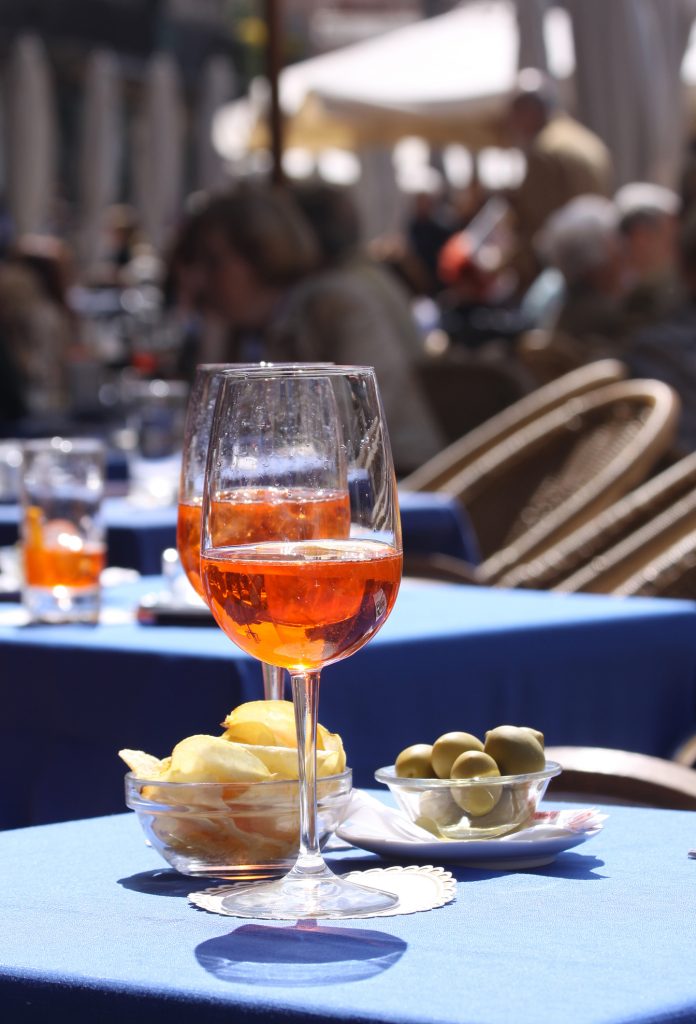When you think of moscato, it’s very possible that you might think of the sickly sweet wine-like beverage flowing through your neighborhood grocery store. Tasting notes for this questionable fermented drink could include words like “flabby,” “saccharine,” or “syrupy” – none of which inspires confidence in the consumer.

The pitiful moscato wines that have been recently produced worldwide are for the mass consumption and appreciation of soda drinkers not wine aficionados. The sugary sweetness was developed expressly for those who don’t ordinarily drink wine. It’s a clear marketing attempt to lure unsuspecting consumers, kicking and screaming, into the wine world by offering them something akin to what they love – a sugar-based, manipulated (and unforgivably bad) product. This questionable product casts an unflatteringly sticky pallor on the whole wine industry.
The true loser here, most unfortunately, is the innocent muscat grape, the base of moscato wines. Muscat doesn’t deserve such disrespectful treatment. The good news is that fine muscat/moscato wines can be had if you look to fine producers.
A versatile grape blessed with gorgeous floral aromas, the muscat grape has been used in wine production for hundreds of years. Muscat can be crafted into gorgeous, aromatic wines, worthy of a place on elegant and discerning tables. The muscat grape is used in the production of some of the world’s most famous dessert wines, like Australia’s incredible Rutherglen Muscat, France’s vin doux naturel, and Spanish Moscatel. These are examples how wines produced from the muscat grape should taste! Clearly it’s worth the while of the wise consumer to rise above mass-produced wines and seek out the wares of talented winemakers, both local and international.
Superstar Austrian female winemaker, Heidi Schrock produces a most extraordinary wine from the yellow Muscat grape. Her wine, Muskateller Sauvage, is made from grapes grown in vineyards around the village of Rust, south of Vienna. The wine is full-bodied with bright aromas of linden blossoms and citrus, and lovely palate of ripe stone fruit and lemon zest. The alcohol is 13% and the acid is high, making the off-dry sweetness perfectly balanced and perfectly delicious. Not unlike a gewertztraminer, this wine pairs beautifully with spicy foods, many Asian foods, and lightly sweet desserts.
If you’re fond of bubbles (and honestly, who isn’t?), a gently sparkling Moscato D’Asti might be your poison. An Italian specialty crafted in the town of Asti tucked within in the hills of Northern Italy; Moscato D’Asti is a crowd favorite. The delicate wine is perfect for Sunday brunches served with fruit salads and sweet breads or as a delicious dessert wine after an evening meal. Low in alcohol and mildly sweet, Moscato d’Asti is moscato done right.
So where can you find well-made moscato to enjoy with your loved ones? During the quarantine, just let your fingers do the walking. Many wine shops and online services are offering delivery at this time and wonderful wines can be delivered to your door. Look for all variations of the Muscat grape. Seek out something different, and don’t be afraid to try products from intriguing local producers or from some faraway land. You just may happen upon a new favorite wine to bring you necessary moments of joy while safely ensconced in your home.
Stay safe. Stay home. Cheers!
Leave a Reply